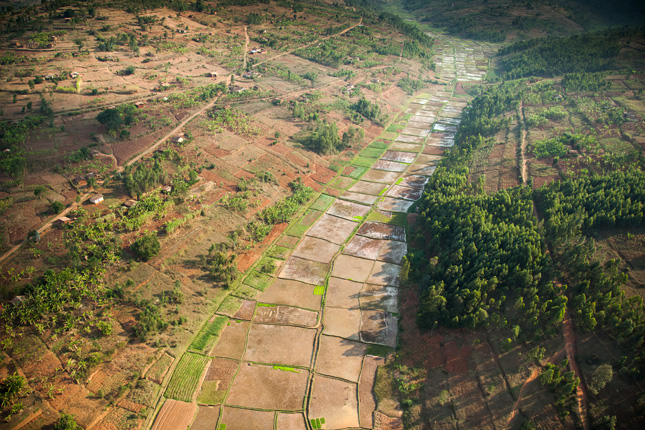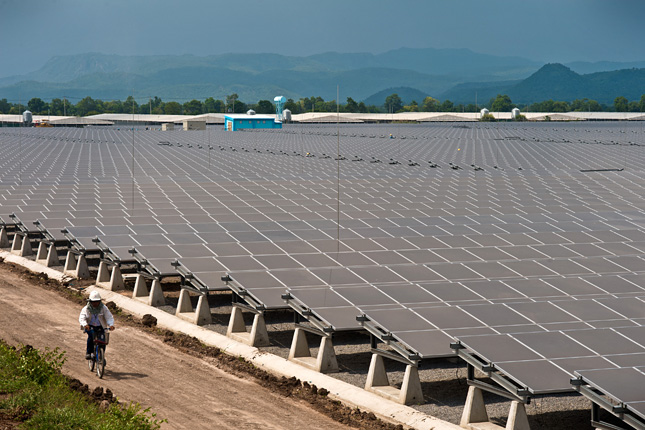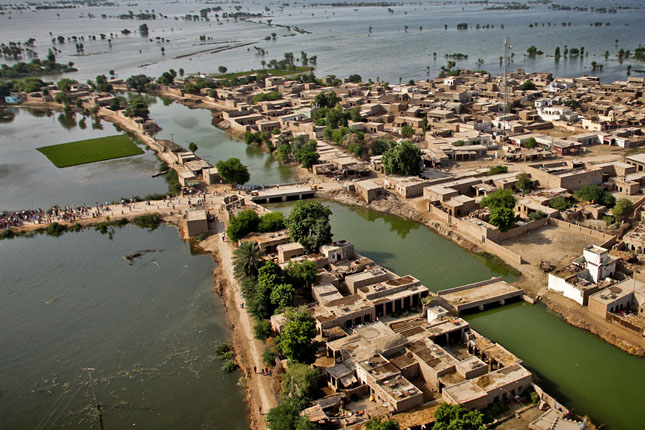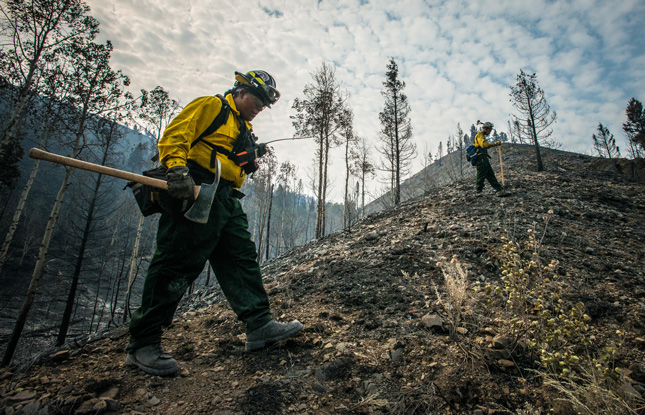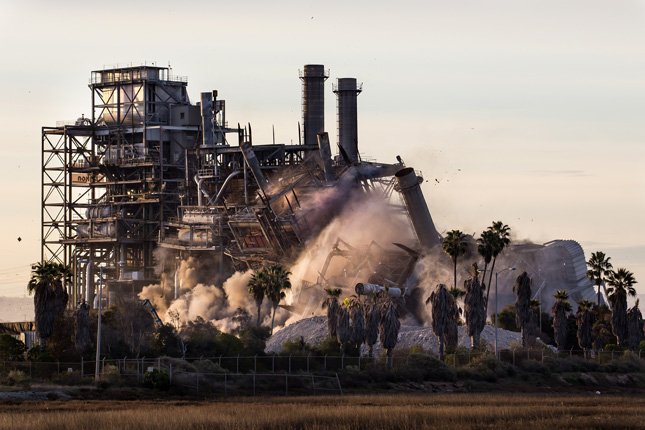-
Preparing the Next National Climate Assessment: An Opportunity to Engage
›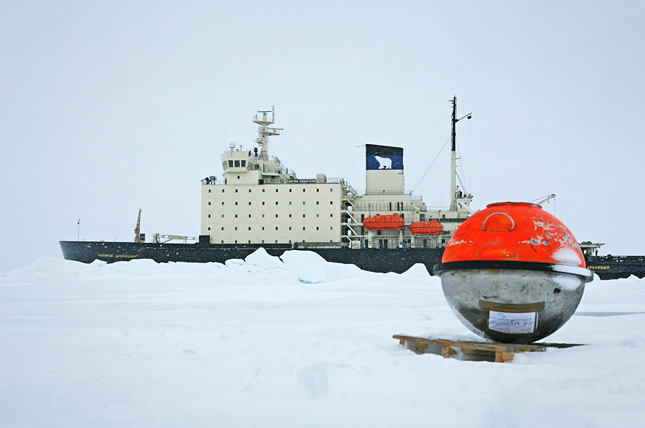
In 1990, the U.S. Congress passed the Global Change Research Act “to assist the Nation and the world to understand, assess, predict, and respond to human-induced and natural processes of global change.” Under this mandate, the U.S. Global Change Research Program (USGCRP) was born, an innovative, cross-cutting research initiative that brings together the science arms of 13 federal agencies working on global change issues, including the Departments of Agriculture, Interior, Energy, Defense, the Environmental Protection Agency, the National Oceanic and Atmospheric Administration, and others.
-
Pathways to Climate-Smart Agriculture in Africa
›
“Climate change and food insecurity are the twin crises that may define Africa’s future,” said the World Bank’s Ademola Braimoh at the Wilson Center on September 13. One proposed solution is so-called “climate-smart agriculture” (CSA), an approach to farming that aims to mitigate the negative impacts of climate change while increasing agricultural production and income. But according to a panel of experts, smallholder farmers around the world have either been slow to adopt CSA practices or failed to sustain their usage over time.
-
What’s Next for the Environment at the UN? Bringing Rights to the Fore, Says Ken Conca
›October 13, 2016 // By Schuyler Null
The United Nations has made significant progress since the Stockholm Conference of 1972 in putting the environment on the global agenda. Indeed, the environment plays a major role in two of the largest UN initiatives today: the Paris climate accord and the Sustainable Development Goals. But in a new brief for the Friedrich Ebert Stiftung Foundation, Wilson Center Fellow Ken Conca writes that the traditional approach to environmental issues is running up against its limits.
-
From Brown to Green: Three Scenarios for a Southeast Asian Regional Energy Grid
›
Southeast Asia is one of the fastest growing energy markets in the world. Regional demand for energy may grow by as much as 80 percent and electricity demand more than triple by 2040. To keep up, governments are working to expand coordination across borders and create a broader regional energy grid (indeed their efforts predate their northern neighbors’ recent announcement of a “supergrid” by several decades).
-
“Loss and Damage” and “Liability and Compensation” – What’s the Difference and Why Does It Matter?
›September 2, 2016 // By Cara Thuringer
When wildfires become unstoppable, consuming forests, farmlands, communities, and anything else in their path, how will those affected cope? When typhoons slam coastal populations, dumping over a foot of rain in a single event, who will be there to help mop up? When seas rise up, drowning centuries-old communities, where will the displaced go?
-
UNEP Releases GEO-6 North American Region Report: A Good Grade, With Qualifications
›
With so much focus on global environmental problems, many may wonder how their region is faring more specifically. This is the sentiment behind the United Nations Environment Program’s process for the latest iteration of its flagship assessment, the Global Environmental Outlook 6 (GEO-6). [Video Below]
-
Africa’s Regional Powers Are Key to Climate Negotiations – But Will They Cooperate?
›
Most African states are more vulnerable and less prepared to address climate change challenges than the rest of the world. This observation is supported by a wide variety of sources, including the Climate Vulnerability Index and the Notre Dame Global Adaptation Index. And in fact Africans and their political leaders frequently observe that this crisis, manufactured in the developed world, disproportionately affects their continent. During a meeting of the African Union in 2007, Ugandan President Yoweri Museveni called climate change “an act of aggression” by the rich against the poor.
-
Ruth Greenspan Bell, The Daily Climate
Who Wins, Who Loses? Why We Need to Ask the Hard Questions on a Carbon Tax
›July 21, 2016 // By Wilson Center Staff
As bad news continues to roll in regarding the accelerating impacts of greenhouse gases accumulating in the atmosphere, there is increasing discussion about imposing a carbon tax. Economists across the political spectrum support it, from Irwin Seltzer’s camp that remains “uncertain as to whether there is a global warming phenomenon” to William Nordhaus, who unequivocally views climate change as a threat.
Showing posts from category mitigation.


